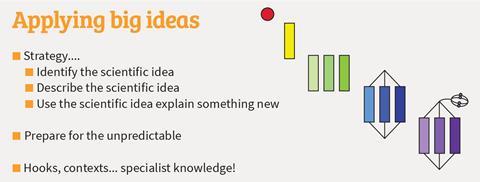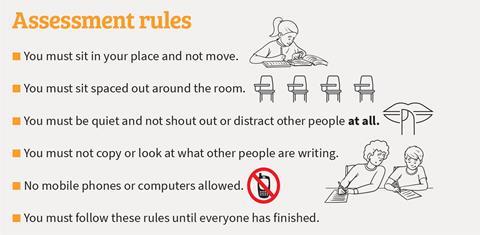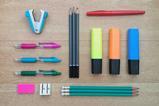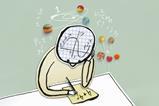All students need equal access to exams. Here’s how to ensure pupils with additional needs get it
With exams on the horizon, teachers and students alike need to think about all that that entails. Students need to prepare well and focus on revision if they are to reach their full potential and be successful in their exams. This is especially true when it comes to learners with special educational needs.
It is also important to match the individual student to the type of qualification. The Joint Council for Qualifications (JCQ) says, ‘It is vital that centres recruit with integrity with regard to general qualifications.’ It may be more appropriate for students to be entered for alternatives, such as Entry Level Certificates (ELC) or other level 1 qualifications, instead of GCSE exams for example.

Access arrangements
Crucially, all students need to have equal access to exams. The principle behind good access arrangements is simple. You put arrangements in place to ensure that your SEND learners can access exams in their ‘normal way of working’. Advice from JCQ is clear “The Equality Act 2010 requires an Awarding Body to make reasonable adjustments where a disabled person would be at a substantial disadvantage in undertaking an assessment.” This doesn’t mean rewriting the exam (the assessment criteria can’t change because that wouldn’t be fair to other learners), but it does mean making sure supportive measures are in place for the exams that closely mirror what happens in the classroom.
You will need to use data from the special needs register for each student and ask each of the student’s teachers to provide information on the normal working practice in lessons. Examples of reasonable adjustments include:
- Extra time (students with needs like autism or social, emotional and mental health needs might require extra processing time)
- Use of a reader/computer reader
- Use of a scribe. If a scribe would benefit a student, make sure sufficient time is set aside to practise making this work in an exam setting
- Use of a word processor. Some of my learners have used a word processor when longer passages of writing are required. This would be normal practice for these students in the classroom in those subjects.
Your exams officer and special educational needs coordinator should be able to advise you on the best arrangements for your learners. Identifying the needs of a student is often the easy part; timetabling scribes/readers for the actual exams can be a lot harder.
It’s all in the preparation
Many special-needs students find revision challenging – it can be difficult to know what and how to revise – and some students struggle to revise without support. One of the most important revision strategies is retrieval practice. Retrieval theory states that the more times you recall a memory the stronger it becomes.
Retrieval works best with a scaffold or structure to complete rather than just expecting learners to highlight notes or read through their work. Consider using graphical information organisers or exam questions to scaffold recall (but stick to simple questions rather than those that test application).

Developing application skills in SEND learners requires teacher input because these skills need to be modelled appropriately. The approach I used, Applying big ideas (credit to @scienceDouglas), was to scaffold the answering of application questions. You can tweak the steps to suit the individual student.
Lower attaining learners often suffer from self-doubt and lack of confidence. So, start off with easy questions and build up to harder ones at their targeted level. Train students to check marks available and how to answer free response questions (this is a huge task so don’t underestimate how long this will take!).

A mock exam is extremely useful for SEND learners because it prepares them for what to expect in a real exam. I build up towards the mock exam with a set of rules that we use for ELC tests. Mock exams should prepare learners for the conditions they will face and is the best way to experience what the final exam will be like. Use reasonable adjustments in your mocks.
Exam anxiety
Feeling anxious about exams is normal and students need to hear this message. Help students by telling them to minimise as many of their anxieties as possible – for example:
- Don’t overthink the exam.
- Don’t put too much pressure on yourself.
- Do get organised for the exam.
- Do revise for each subject.
- Do plan for the exam.
Get students to plan out their routine for during exam times. Perhaps they can leave the breakfast things out the night before so they are good to go (some students might appreciate a checklist or visual timetable to help). Students should also have a list of the appropriate equipment to bring to the exam.
I worked with a colleague who used to suggest worry baskets in which students are asked to write down the things that worry them, then to categorise them as things they need to act on straight away, things they can leave for now and things they have no control over (so they don’t need to worry about them).
You could also show students breathing exercises (there are many websites and apps available, so they can find one that works for them). Mindfulness exercises might also be appropriate for some learners, which may help them with their thoughts and feelings surrounding exams and aid their well-being.
Rob Butler was a special school science teacher and is the second lead for two learning science partnerships














No comments yet